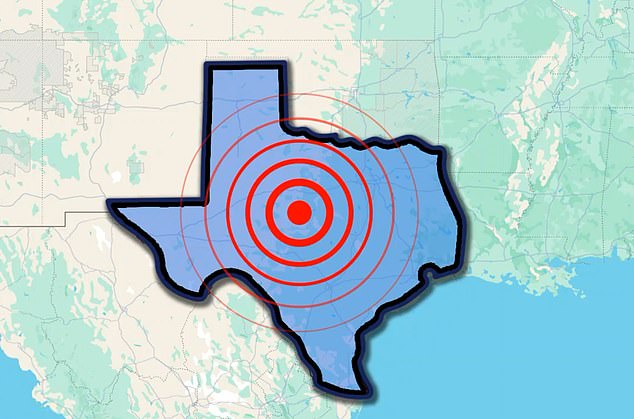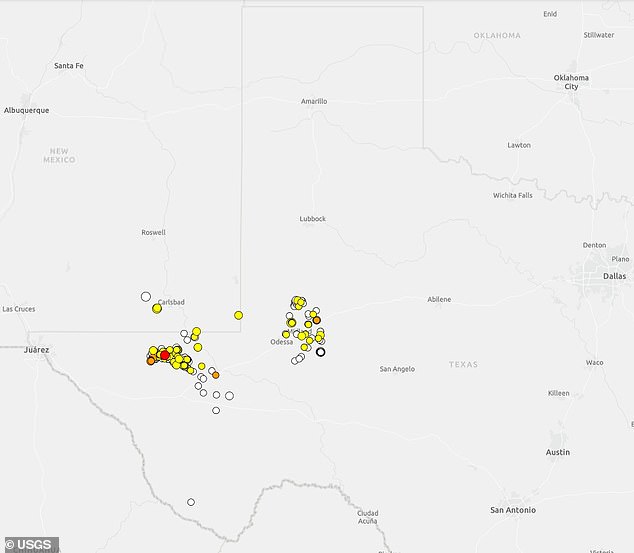Texas has experienced multiple earthquakes In the past twenty-four hours, the latest one registered at a magnitude of 3.3.
The US Geological Survey (USGS) recorded the seismic event at 9:01 am ET in the state’s western area.
Earthquakes with a magnitude of 2.5 or higher are typically noticeable and may result in slight structural harm.
Nonetheless, no harm or physical damage has been documented.
The USGS captured an estimated 10 minor tremors in the area over the last 24 hours, ranging from 1.7 to 2.4 magnitude.
Although West Texas features multiple fault lines, the quakes were probably due to induced seismicity—earthquakes initiated by human actions, notably oil and gas extraction activities .
These operations primarily trigger earthquakes via the process of injecting wastewater, which raises underground pressure and slicks fault lines, thus increasing the likelihood of slippage.
According to the USGS, the surge in seismic activity observed recently in the central part of the United States can be mainly attributed to the process of injecting wastewater generated as a result of petroleum extraction activities.
'Seismic activity induced by wastewater disposal wells tends to be more common due to their prolonged operation and injection of significantly larger volumes of fluid compared to what occurs during the hydraulic fracturing process.'


Texas produces 42 percent of the country's crude oil, which makes it the leading producer in the United States.
The state is similarly recognized for its widespread adoption of fracking, which involves retrieving oil and natural gas located far beneath the surface. This technique entails injecting substantial amounts of water, chemical substances, and sand into subterranean rock layers to create fractures, thereby freeing the enclosed hydrocarbons.
Hydraulic fracturing itself doesn’t typically lead to earthquakes, but the disposal of wastewater generated from this process has been known to induce seismic activity.
According to a 2022 study conducted by the University of Texas at Austin, 68 percent of earthquakes in Texas measuring above magnitude 1.5 were found to be 'strongly linked' to oil and gas activities.
Dr Alexandros Savvaidis recently elaborated on how increased drilling activities might ultimately result in heightened seismic occurrences within the region.
'In particular, deep injection wells are associated with more powerful earthquakes,' Dr Savvaidis explained. KMID .
'Given that superficial injections appear to pose lesser risks concerning major seismic activities.'
Read more